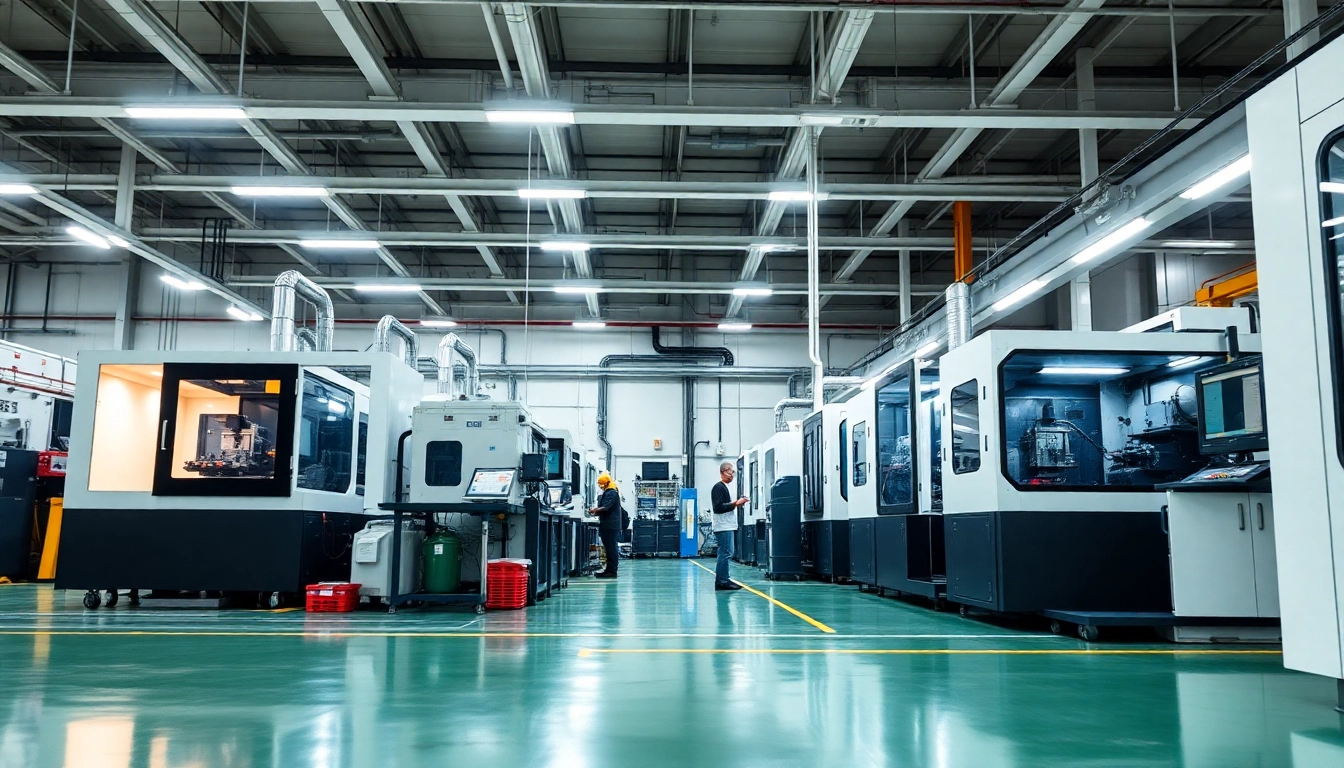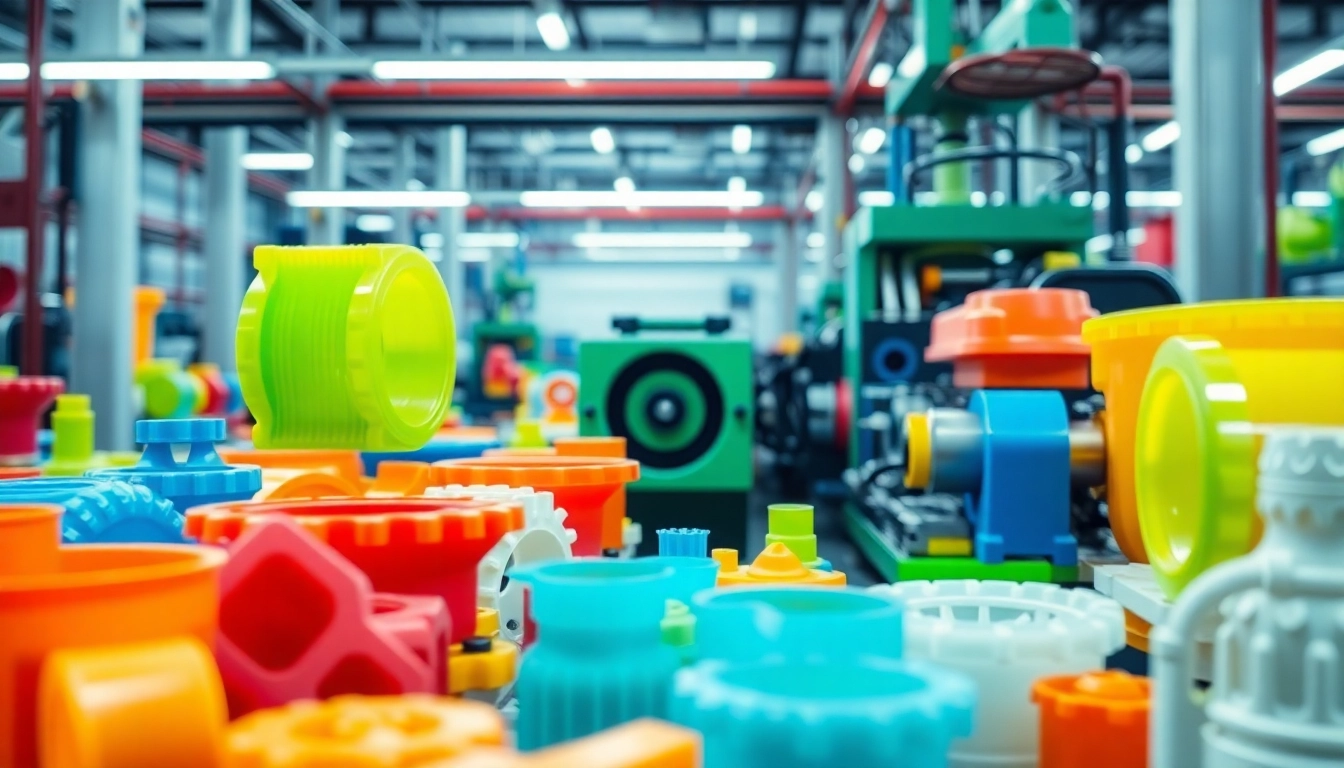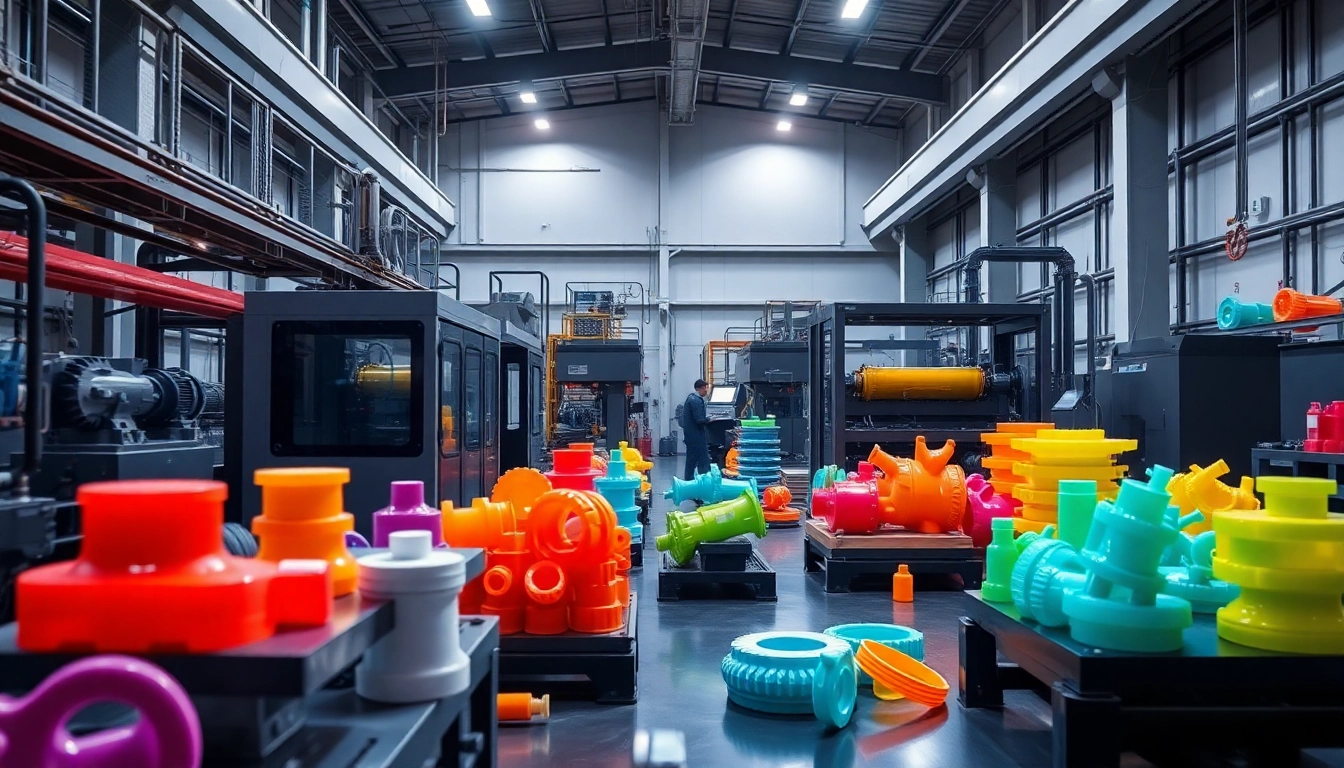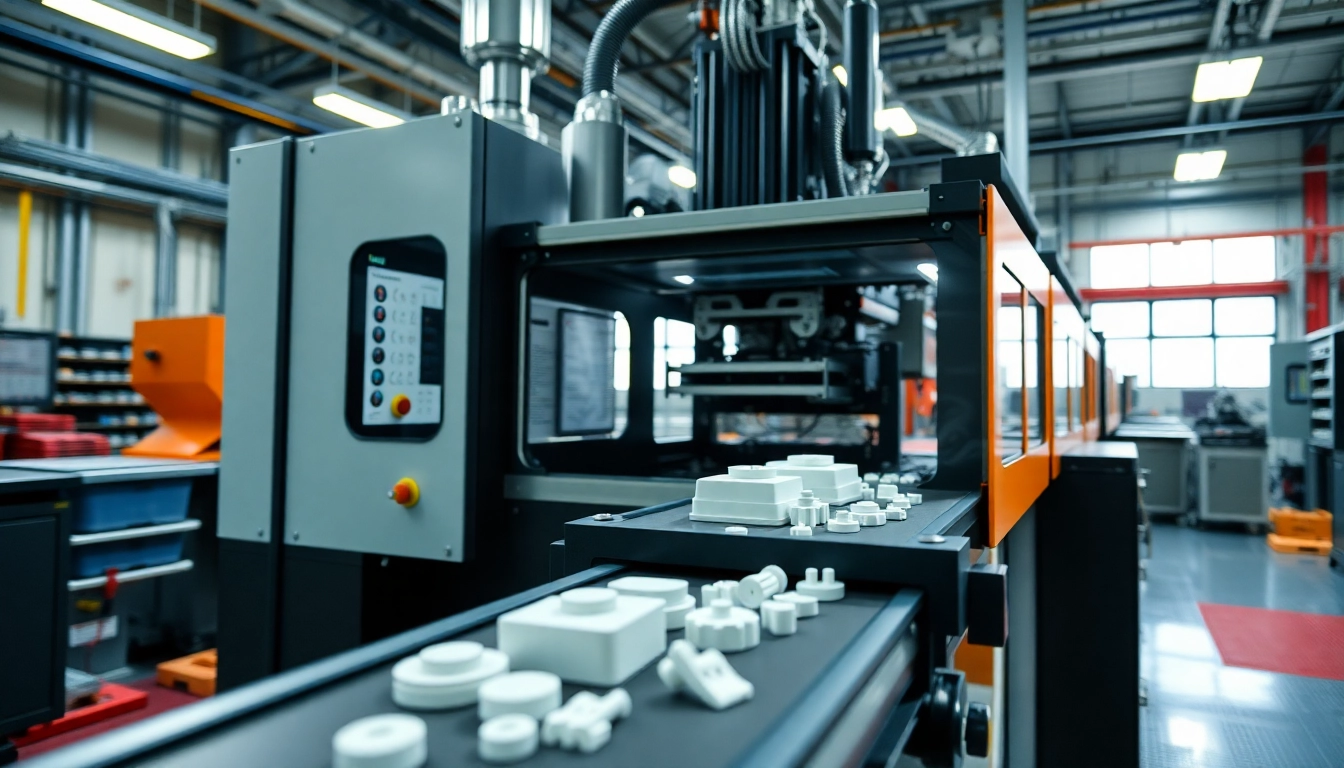Understanding Injection Molding
What is Injection Molding?
Injection molding is a manufacturing process used to produce parts by injecting molten material into a mold. This method is primarily used for plastics but can also accommodate metals, glasses, elastomers, and other materials. The molds are unusually made from steel or aluminum and are designed to create parts with intricate shapes and specifications. This technique has revolutionized production in various industries, providing a means to create high-volume, consistent items with minimal waste.
How Injection Molding Works
The injection molding process consists of several stages:
- Material Selection: The choice of material is critical. Common materials include thermoplastics like polyethylene, PVC, and polystyrene, and thermosetting plastics.
- Melting: The material is heated until it becomes viscous and can easily flow into the mold. This usually occurs in a screw-type machine, which helps in uniform melting and mixing of colorants.
- Injection: The molten material is injected into a mold cavity under high pressure. This allows it to fill all intricate details of the mold.
- Cooling: Once the mold is filled, it is cooled to solidify the material. Cooling times can vary depending on the thickness of the part.
- Ejection: The solidified part is then ejected from the mold and is ready for further processing, such as trimming, assembly, or packing.
Applications of Injection Molding in Various Industries
Injection molding is highly versatile and is utilized across many sectors. Here are some prominent examples:
- Automotive Industry: Parts like dashboards, cup holders, and panels.
- Consumer Goods: Items such as toys, household items, and electronic casings.
- Medical Sector: Customized surgical instruments, syringe barrels, and housings for medical devices need stringent quality standards.
- Aerospace: Components that require precision and lightweight materials.
- Construction: Various fittings, containers, and tools.
Why Choose a Professional Injection Molding Company?
Benefits of Partnering with Experts
Choosing a professional injection molding company offers numerous advantages, including:
- Expertise: Professionals possess extensive knowledge of materials, processes, and design best practices, ultimately resulting in higher-quality products.
- Technology: Advanced machinery and techniques improve efficiency and product accuracy.
- Scalability: Experienced companies can scale production up or down based on demand fluctuations.
Cost Efficiency and Quality Assurance
Engaging expert partners reduces costs in the long run. Professionals employ strategies that minimize waste and optimize production processes. Additionally, adherence to quality standards ensures that end products are reliable and meet consumer expectations, reducing the likelihood of product failures and recalls.
Impact on Product Development Cycles
Rapid prototyping and production cycles allow businesses to innovate and bring products to market quicker. By utilizing advanced CAD/CAM and rapid tooling technologies, professional injection molding companies facilitate faster design iterations and testing.
Key Services Offered by Injection Molding Companies
Custom Plastic Injection Molding Services
Custom services allow businesses to produce unique components tailored to specific requirements. This service covers everything from initial design concepts to final product delivery, offering flexibility in volume and complexity.
Materials Used in Injection Molding
Industrial professionals utilize a broad range of materials in injection molding, ensuring that products meet necessary performance criteria. The most common materials include:
- Thermoplastics: These can be remelted and reshaped, making them ideal for injection molding.
- Thermosetting Plastics: These materials harden permanently and cannot be remelted, offering durability and heat resistance.
- Elastomers: Flexible and stretchable materials often used for seals and gaskets.
Design and Prototyping Capabilities
Advanced design and prototyping capabilities are vital in achieving innovative designs that meet industry standards. Investing in CAD software allows for profound analysis and design of products before actual production, ensuring that any issues are addressed early in the process.
Top Considerations When Selecting an Injection Molding Partner
Industry Experience and Reputation
When selecting a partner, it is essential to assess their experience and track record in the industry. A reputable company typically provides references, showcasing previous successful projects and satisfied clients.
Capacity and Technology
Understanding a company’s manufacturing capacity can help determine whether they can meet your production demands. It is also crucial to evaluate the technology they employ; newer, more efficient technologies can lead to better quality products and reduce production times.
Customer Support and Collaboration
Establishing a strong collaboration requires effective communication and support from the injection molding company. A partner willing to engage in joint problem solving can enhance the efficiency of the development process and product quality.
Future Trends in Injection Molding
Sustainability and Eco-Friendly Practices
As environmental concerns become more significant, the injection molding industry is shifting towards sustainable practices. Companies are now adopting bio-based materials and recyclable plastics, reducing greenhouse gas emissions and waste.
Technological Advancements in Injection Molding
Advancements in technology, such as the integration of AI and IoT in the production process, enable predictive maintenance and process optimization. This not only enhances efficiency but also minimizes downtime and reduces costs.
Market Demand and Growth Opportunities
The injection molding market continues to grow, driven by increasing demand for consumer goods, automotive components, and medical devices. Companies that can adapt to changing consumer needs and technological advancements will likely find new opportunities for growth and profitability.



